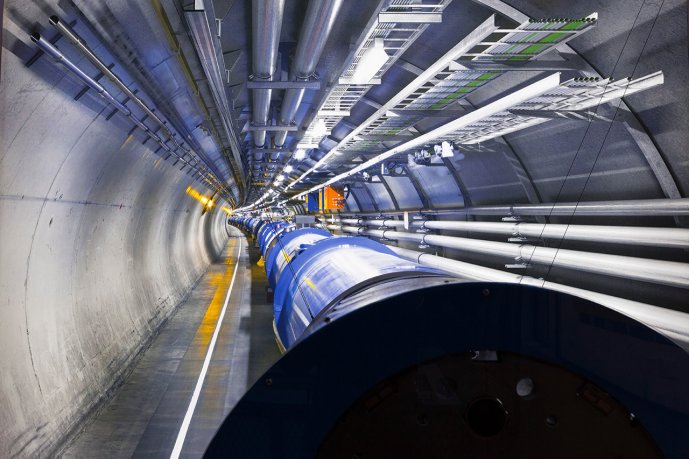
Particle accelerator
A device that uses electric fields to accelerate charged particles to very high speeds and energies. There are many types of accelerators. The simplest ones use a static electric field, where the particles are accelerated by the potential difference between the electrodes. More complex accelerators use a variable electromagnetic field that exposes the particle to progressively larger and larger potential differences, thus accelerating it more and more. The particle can be accelerated linearly, or its path can be bent into a circle by a magnetic field. It can then pass repeatedly through the same accelerating segment to reach speeds close to the speed of light. The world’s largest accelerator is the 27-kilometre-long circular Large Hadron Collider. Accelerators can serve scientific purposes by shooting accelerated particles into a target, or colliding pairs of counter-accelerated particles, to gain information about the nature of subatomic particles. Smaller accelerators have applications in industry or medicine. In thermonuclear fusion research, accelerators are used in neutral beam injection, where the injection of accelerated particles is used to heat the plasma. The accelerator could also serve in the elimination of long-lived isotopes in radioactive waste using Accelerator Driven Transmutation Technology.
Diagram of the linac, a linear particle accelerator. As the particle flies, the electric field between the drift tubes (blue cylinders) changes so that it always acts in a forward direction to accelerate the particle. (Source: © Nandalal / stock.adobe.com)




